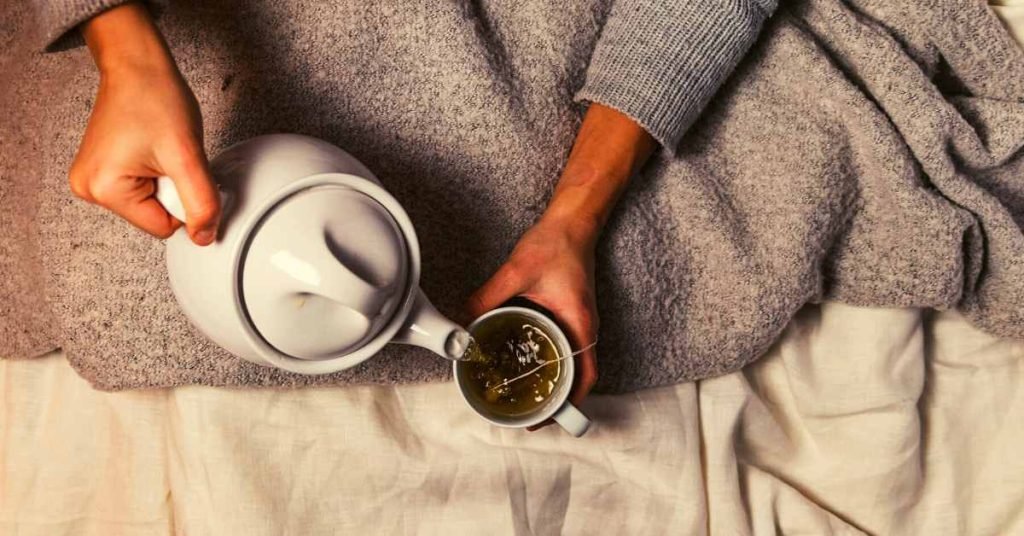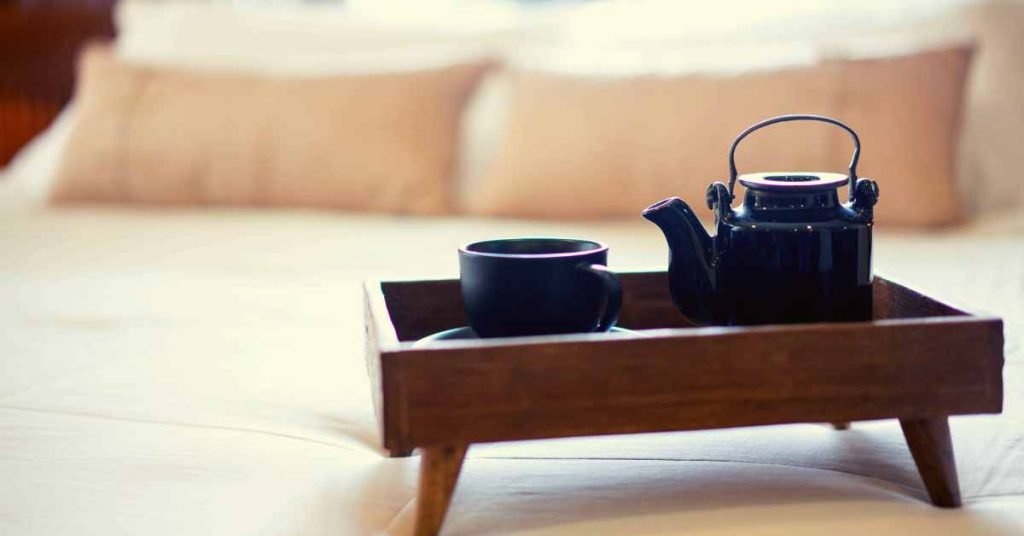Sleep, a precious commodity often elusive to many, holds the key to our physical and mental well-being.
However, in the modern world, where stress, technology, and endless distractions abound, achieving restful slumber can feel like an unattainable dream.
Insomnia, a relentless foe, affects millions worldwide, leaving individuals longing for a respite from restless nights.
While the pharmaceutical industry offers an array of sleep aids, an age-old remedy has quietly emerged as a natural and potent ally against sleeplessness—herbal teas.
For centuries, cultures across the globe have embraced the therapeutic power of herbal infusions.
In the realm of sleep, these enchanting brews hold remarkable potential, offering a safe and gentle pathway to tranquility.
But what makes herbal teas the optimal choice for combating insomnia?

In this article, we delve deep into the soothing embrace of nature, exploring the myriad reasons why herbal teas stand as the undisputed champions in the battle against sleeplessness.
Join us on a journey through the mystical world of herbs, as we uncover the scientific foundations, historical traditions, and abundant benefits that make herbal teas an unparalleled remedy for insomnia.
From chamomile’s tranquilizing touch to valerian’s seductive embrace, we will unlock the secrets behind the enchanting flavors and captivating aromas that lull us into restful repose.
Prepare to discover the gentle potency that resides in nature’s leafy bounty. Let us cast aside the shackles of sleeplessness and embark on a quest for serenity, guided by the ever-reliable companion of herbal teas.
As the moon rises and the world slumbers, we invite you to unlock the secrets of herbal teas as the supreme antidote to insomnia.
However, it’s important to note that while herbal teas may offer some relief for certain individuals, insomnia is a complex condition that can have various underlying causes.
It’s always advisable to consult a healthcare professional for a proper diagnosis and personalized treatment plan.
That being said, here are some reasons why herbal teas are often considered an ultimate remedy for insomnia:
Relaxation and Calming Effects

Many herbal teas, such as chamomile, lavender, and passionflower, have natural properties that can promote relaxation and calmness.
These teas contain compounds like flavonoids, terpenes, and antioxidants that may have sedative effects, helping to reduce anxiety and stress, which are common contributors to sleep difficulties.
Mild Sedative Properties
Certain herbs used in teas, such as valerian root, lemon balm, and hops, are known for their mild sedative properties.
These herbs may help to induce sleepiness and improve sleep quality, making them potentially beneficial for individuals struggling with insomnia.
Caffeine-Free Alternative
Unlike caffeinated beverages like coffee or black tea, herbal teas are typically caffeine-free. Caffeine is a stimulant that can interfere with sleep and exacerbate insomnia symptoms.
By opting for herbal teas, you can enjoy a warm and soothing beverage without the risk of stimulating your nervous system or disrupting your sleep patterns.
Ritual and Bedtime Routine

Establishing a consistent bedtime routine is often recommended for individuals with insomnia.
Drinking herbal tea before bed can become a soothing ritual that signals to your body and mind that it’s time to unwind and prepare for sleep.
The act of sipping a warm beverage can be comforting and help create a relaxing environment conducive to sleep.
Hydration
Staying hydrated is essential for overall health, including sleep.Mild dehydration can contribute to sleep problems, and consuming herbal teas provides a hydrating option.
Proper hydration supports optimal bodily functions, including those related to sleep regulation.
Reduced Dependency on Medications
Some individuals prefer natural remedies over medications for managing their health conditions whenever possible. Herbal teas offer a potential alternative to pharmaceutical sleep aids for those who prefer a more holistic approach.
However, it’s important to note that severe or chronic insomnia may require medical intervention, and herbal teas may not be sufficient as the sole treatment method.
What Herbal Teas Are Best for Combating Insomnia?

When it comes to combatting insomnia, the world of herbal teas is a treasure trove of natural remedies. From ancient botanicals to exotic leaves, a plethora of herbal infusions hold the power to lull us into a restful slumber.
Here, we explore some of the finest contenders in the realm of herbal teas, revered for their ability to soothe the restless mind and invite peaceful sleep.
- Chamomile Tea: Renowned for its calming properties, chamomile tea has long been celebrated as a sleep aid. The delicate flowers of the chamomile plant contain compounds that promote relaxation, reduce anxiety, and ease muscle tension. Sipping a cup of chamomile tea before bedtime can help create a tranquil ambiance conducive to sleep.
- Valerian Root Tea: Valerian root has been used for centuries as a natural sedative. Valerian tea, brewed from the plant’s roots, contains compounds that interact with receptors in the brain to induce relaxation and encourage sleep. It is particularly effective for individuals who struggle with falling asleep or experience sleep disturbances.
- Lavender Tea: The gentle scent of lavender alone can transport us to a state of calm. Lavender tea, crafted from the fragrant purple blossoms, offers more than just a pleasing aroma. It contains compounds that soothe the nervous system and promote relaxation, making it an excellent choice for those battling insomnia.
- Passionflower Tea: With its exquisite blooms, passionflower harbors tranquilizing properties that aid in promoting restful sleep. This tea acts as a mild sedative, alleviating anxiety and restlessness that often accompany insomnia. By enhancing the production of GABA, a neurotransmitter that induces relaxation, passionflower tea can help create the ideal environment for a good night’s sleep.
- Lemon Balm Tea: Lemon balm, a member of the mint family, is known for its calming effects on the mind and body. The tea derived from its leaves offers a subtle citrusy flavor and possesses compounds that reduce stress and anxiety. By quieting the mind and soothing the nervous system, lemon balm tea contributes to improved sleep quality.
- Peppermint Tea: While commonly associated with refreshing flavors, peppermint tea also possesses sleep-enhancing properties. Its soothing menthol aroma can help relax muscles and promote a sense of calmness, allowing the body and mind to unwind before bedtime. Additionally, peppermint tea aids in digestion, which can contribute to a more comfortable sleep experience.
Final Word

Incorporating these herbal teas into your nighttime routine can serve as a delightful and effective complement to healthy sleep hygiene practices.
Harness the power of nature’s botanical allies, as they envelop you in tranquility and usher you into a peaceful slumber.
While herbal teas can be a useful addition to a healthy sleep routine, they may not work for everyone or in all cases of insomnia.
If you’re experiencing persistent or severe sleep difficulties, it’s important to consult a healthcare professional to identify the underlying causes and develop an appropriate treatment plan tailored to your specific needs.
MEDICAL DISCLAIMER
Itsnevernotteatime.com cannot and does not contain medical/health advice. The medical/health information is provided for general and educational purposes only and is not a substitute for professional advice.




